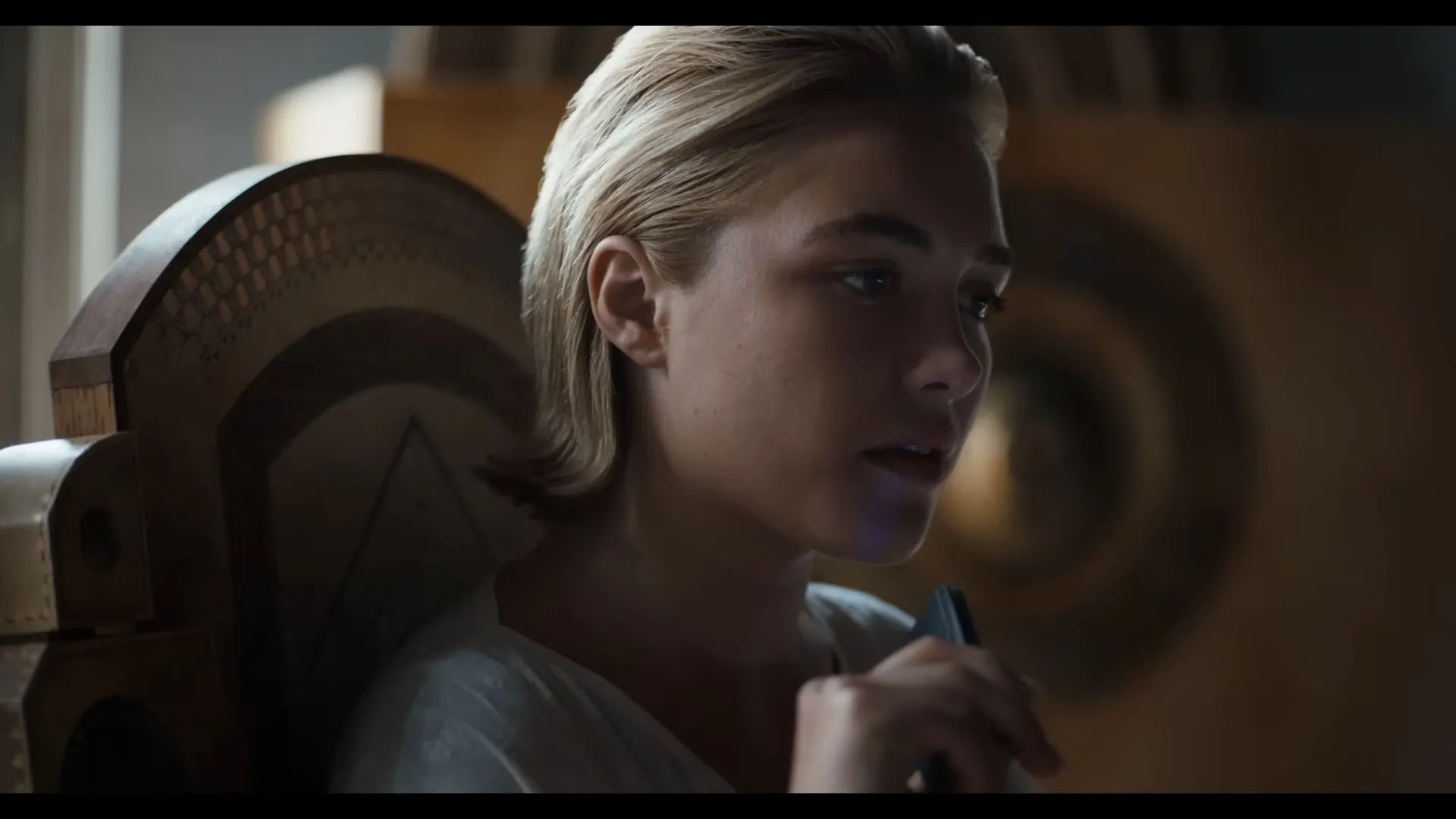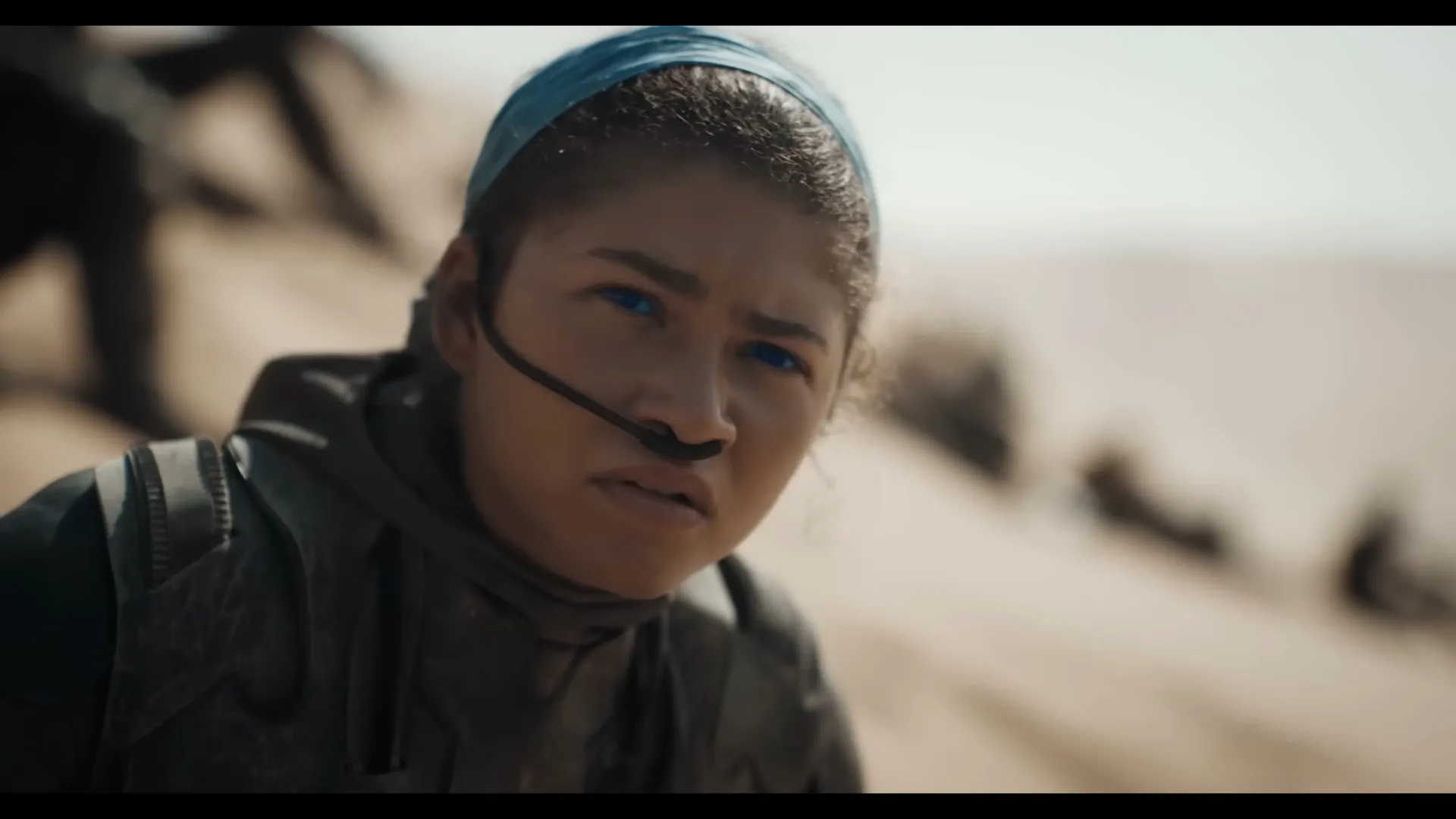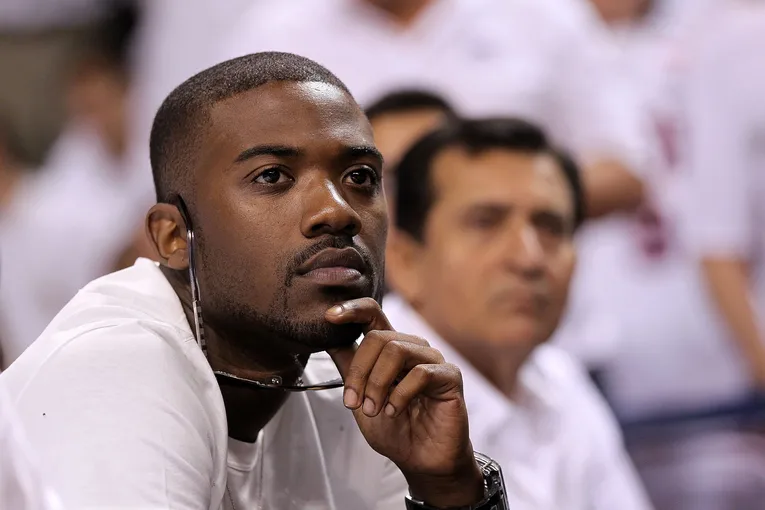In directly shutting down the regular accusation from those who have never engaged with the series that its narrative is ‘pro-white savior’, Dune duology director Denis Villeneuve has revealed that the reason he chose to expand on Chani’s character in the recently released second entry was so that audiences would clearly understand series creator Frank Herbert’s message that Paul’s story was “not a celebration” but “more of a warning”.

For those unfamiliar with Herbert’s original Dune novel, the differences between Zendaya’s cinematic depiction of the young Fremen woman and the one found in the book could not be more apparent.
In Villeneuve’s films, Chani is shown to be a strong warrior who, despite her love for Paul, cannot help but find herself growing evermore concerned with his willingness to present himself as her people’s ‘messiah’, the Muad’Dib, despite both of them knowing that the prophecy which foretold his rise to power was an outright fabrication.
As such, when she eventually discovers his plans to launch a war against House Harkonnen using her people as his troops, this version of Chani voluntarily removes herself from Paul’s side, rejecting his marriage proposal and riding off into the desert for parts unknown.
But in the book, though likewise a formidable warrior thanks to both the harsh conditions of her life on Arrakis and subsequent Bene Genesserit combat training from Paul Atreides and his mother Lady Jessica, the young Fremen is shown to have a much more passive personality – so much so that when Paul eventually finds himself needing to marry the Princess Irulan in order to cement his rule over the spice-producing planet, Chani reluctantly agrees to go along with it and relegate herself to one of his concubines.
And while many fans were confused as to why Villenueve chose to make this change to the silver screen incarnation of her character, according to the director himself, he did so in order to both better honor and better communicate the message of Herbert’s seminal work.
Speaking to his approach to Chani’s character during a March 2024 appearance on Vanity Fair’s Notes on a Scene series – the scene chosen for him to break down being the one where Paul first uses his thumper to lure out a sandworm -Villenueve explained, “When the first novel came out, Frank Herbert was disappointed the way the book had been perceived. He felt that the reader was thinking that Dune was a celebration of Paul Atreides, but quite the opposite.”

“His intention was to make a cautionary tale, a warning towards messianiac figures,” the director continued. “And in order to correct that, this perception of the first book, he wrote another book, Dune Messiah. It’s almost like an epilogue where we understand what Paul really means to Frank Herbert.”
To this end, Villeneuve then turned to his film adaptation and recalled, “What I did is that I transformed Chani’s character. I made her more prominent. In the book, Chani kind of disappears, dissolves into the shadow of Paul. She’s in the background, she’s a believer. There’s nothing special apart that she’s Paul’s lover. There was a strong opportunity there, a character that could help me to have a distance, a critical distance with Paul Atreides. “
“I love witness [characters] that are listening in corners or that you can just feel their presence without dialogue and understand what they are going through, and Zendaya is incredibly expressive with her eyes, and she brought that strength to the character that was required,” he added. “I wanted to see in her the power of the youth and someone that wants to transform her world, that she doesn’t believe in the old ways of seeing the world, and she’s a free character.”
Drawing his thoughts to a close, Villenueve ultimately asserted, “Through her eyes we understand twhat paul becomes and in which direction he goes, which transforms the movie, not into a celebration, but as Frank Herbert was wishing, more of a warning.”











